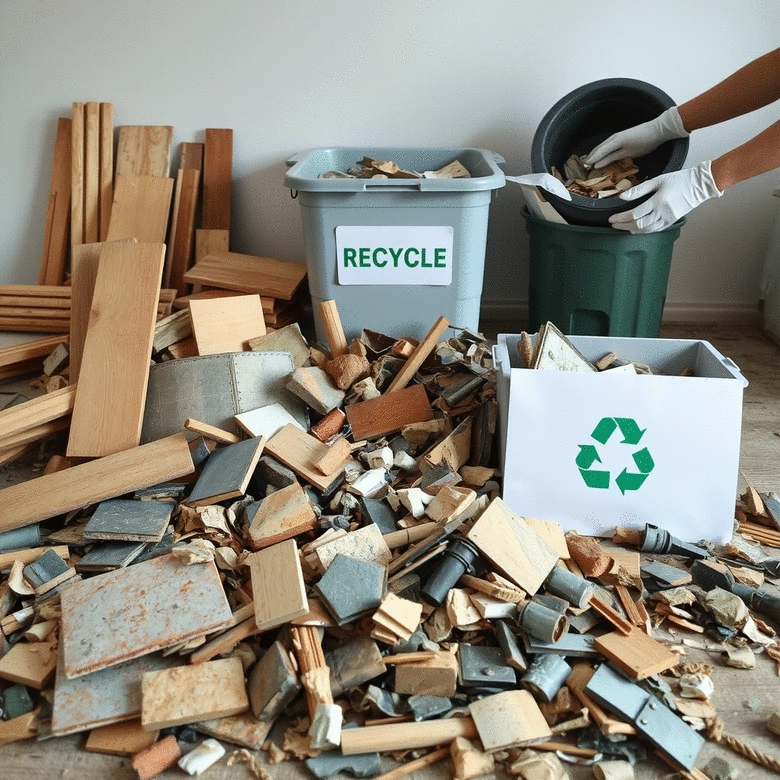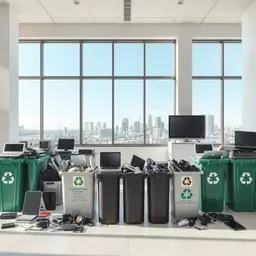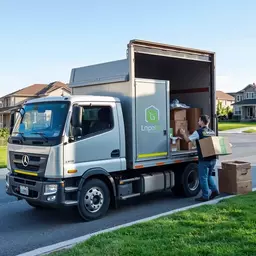Sustainable Renovation Debris Recycling Tips
As we face increasing environmental challenges, the choices we make in renovation projects become more crucial than ever. By understanding sustainable waste management, we can make impactful decisions that not only enhance our living spaces but also protect our planet for future generations.
What You Will Learn
- Recycling renovation debris is essential for minimizing environmental impact and reducing landfill overflow.
- Sustainable waste management prioritizes principles such as source reduction, recycling, and composting to mitigate waste issues.
- Incorporating green building practices during renovations improves energy efficiency and enhances indoor air quality.
- Comprehensive planning from the outset can significantly reduce waste production throughout the renovation process.
- Utilizing sustainable materials not only benefits the environment but can also lead to cost savings in renovation projects.
Key Principles of Sustainable Waste Management in Renovation
Understanding sustainable waste management is crucial for minimizing environmental impact during renovations. Here are the core principles illustrated below, highlighting how choosing junk removal methods carefully can significantly contribute to sustainability.
Source Reduction
This involves reducing waste at its origin, which is vital during renovations to lessen overall debris produced.
Recycling
Transforming waste into new materials is essential for a sustainable future and helps mitigate landfill overflow.
Composting
Organic waste from renovations can be composted to enrich the soil, promoting eco-friendly practices.
Circular Economy
By reusing materials, we support a sustainable cycle that benefits the environment and the community.
Understanding Sustainable Waste Management in Renovation
Renovation projects can often lead to a hefty pile of waste, and that’s where sustainable waste management comes into play! It’s essential to understand the impact of renovation waste not just on our environment but also on our communities. By adopting eco-friendly practices, we can significantly reduce this impact and foster a cleaner, greener Sydney for generations to come.
As an environmental advocate, I’ve seen firsthand how waste from renovation can cause pollution and strain our landfills. It’s not just about cleaning up; it’s about making responsible choices. Through sustainable waste management, we can recycle, reuse, and reduce waste, ensuring a healthier planet while transforming our homes.
The Importance of Recycling Renovation Debris
When we start a renovation, we usually think about the aesthetic changes we want to make. But have you ever considered the environmental consequences of the debris generated? Recycling renovation debris is crucial because it mitigates landfill overflow and reduces CO2 emissions. It’s not just beneficial for the environment; it also paves the way for sustainable practices in our community, much like effective garden waste recycling tips can transform your outdoor space.
Here are some key aspects of why recycling is vital in renovation projects:
- Reduces landfill waste: This helps to conserve valuable land resources.
- Conserves natural resources: Recycling materials like wood and metal prevents the depletion of raw materials.
- Encourages a circular economy: By reusing materials, we support a sustainable cycle that benefits everyone.
Defining Sustainable Waste Management
Sustainable waste management is a holistic approach that ensures waste is managed in a way that minimizes its impact on the environment. It's about understanding the entire lifecycle of materials—from sourcing to disposal. Some key principles include source reduction, recycling, and composting.
To better grasp this concept, let’s look at some relevant terms:
- Source Reduction: This involves reducing waste at its origin, which is vital during renovations.
- Composting: Organic waste from renovations, like wood scraps, can be composted to enrich the soil.
- Recycling: Transforming waste into new materials is essential for a sustainable future.
Introduction to Green Building Practices
Green building practices are all about creating structures that are environmentally responsible and resource-efficient throughout their lifecycle. In renovation, these practices play a significant role in ensuring sustainable waste management. They include everything from using eco-friendly materials to improving energy efficiency. For those looking to manage debris efficiently, understanding affordable rubbish removal in Sydney can be a great starting point.
Here’s why incorporating green building practices is essential in renovations:
- Minimizes waste: Using sustainable materials reduces the overall waste generated.
- Improves indoor air quality: Eco-friendly practices contribute to healthier living environments.
- Promotes energy efficiency: Sustainable renovations can lead to significant energy savings.
At Sydney Junk Pros, we believe in the importance of these practices and advocate for their implementation in every renovation. Together, we can create not just beautiful homes, but also a sustainable future for our community!
Pro Tip
When planning your renovation, consider conducting a waste audit. This involves assessing the types and amounts of materials you'll be working with. By identifying recyclable and reusable items beforehand, you can streamline your waste management process and maximize your eco-friendly efforts!
Encouraging Sustainable Practices in Renovation
As we've explored throughout this article, understanding sustainable waste management in renovation is crucial for both the environment and our communities. By focusing on recycling renovation debris, employing green building practices, and implementing effective waste reduction strategies, we can play a significant role in preserving our planet. Each strategy, from comprehensive planning to utilizing sustainable materials, contributes to a cleaner, greener future!
To recap the key takeaways, here are some essential points to remember:
- Recycling renovation debris is vital for minimizing environmental impact.
- Sustainable waste management relies on principles that prioritize reuse and recycling.
- Implementing green building practices enhances the sustainability of renovation projects.
- Comprehensive planning can significantly reduce waste production.
- Utilizing sustainable materials not only benefits the environment but also can save costs!
Call to Action: Embrace Sustainable Renovation Today
Now that you’re equipped with valuable insights and strategies for sustainable renovation, it’s time to take action! Whether you’re a homeowner, landlord, or business owner, I challenge you to implement these tips in your next renovation project. Remember, every small step counts! You might start by assessing your renovation plans to ensure you’re considering waste management right from the start. For more detailed information on various aspects of junk removal, consider reading about choosing a junk removal service that aligns with sustainable practices.
Don’t forget to share your experiences with sustainable renovation practices. At Sydney Junk Pros, we love hearing from our community about the innovative ways people are incorporating eco-friendly practices. If you have questions or need assistance with rubbish removal, feel free to reach out! Together, we can make a difference and contribute to a cleaner, greener Sydney.
Let’s embrace sustainable renovation today, and keep pushing for a healthier environment for ourselves and future generations!
Recap of Key Points
Here is a quick recap of the important points discussed in the article:
- Recycling renovation debris is crucial for minimizing environmental impact and reducing landfill waste.
- Sustainable waste management emphasizes source reduction, recycling, and composting to manage waste effectively.
- Implementing green building practices leads to reduced waste, improved indoor air quality, and enhanced energy efficiency.
- Comprehensive planning is essential for significantly reducing waste production during renovations.
- Utilizing sustainable materials not only helps the environment but can also lead to cost savings.






